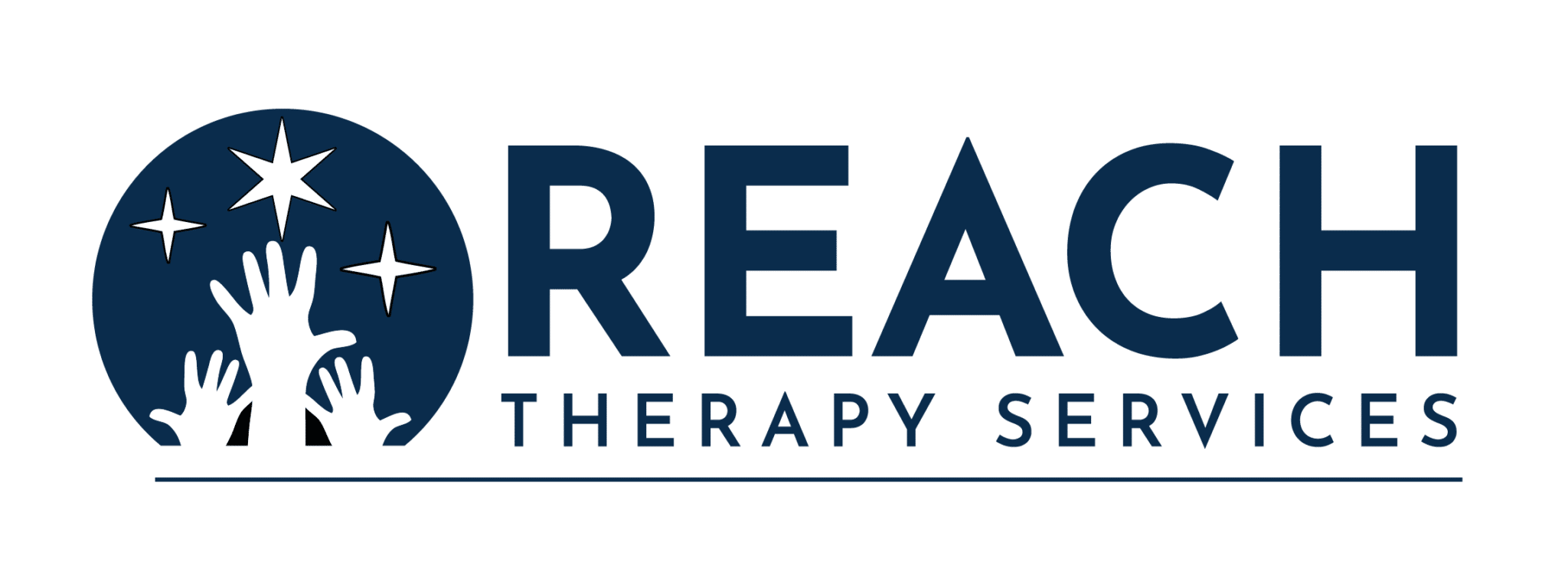SPEECH-LANGUAGE THERAPY
Speech-language therapy helps clients REACH beyond any challenges related to a person’s ability to communicate, use and understand language, swallow, and/or function safely and independently in his or her own environment.
WHY SPEECH THERAPY?
Speech-language pathologists (SLPs), sometimes called speech pathologists or speech therapists, work to prevent, assess, diagnose, and treat speech, language, social communication, cognitive-communication, and swallowing disorders in children and adults. Learn more about the clinical definition of Speech Therapy from the American Speech-Language-Hearing Association here

TREATMENT AREAS
Speech disorders occur when a person has difficulty producing speech sounds correctly or fluently (e.g., stuttering is a form of disfluency) or has problems with his or her voice or resonance.
Language disorders occur when a person has trouble understanding others (receptive language) or sharing thoughts, ideas, and feelings (expressive language). Language disorders may be spoken or written and may involve the form (phonology, morphology, syntax), content (semantics), and/or use (pragmatics) of language in functional and socially appropriate ways.
Swallowing disorders (dysphagia) are feeding and swallowing difficulties which may occur in children with a history of premature birth, developmental delay, illness, surgery, stroke, or injury.
Social communication disorders occur when a person has trouble with the social use of verbal and nonverbal communication. These disorders may include problems (a) communicating for social purposes (e.g., greeting, commenting, asking questions), (b) talking in different ways to suit the listener and setting, and (c) following rules for conversation and story-telling. All individuals with autism spectrum disorder have social communication problems. Social communication disorders are also found in individuals with other conditions, such as traumatic brain injury.
Cognitive communication disorders include problems organizing thoughts, paying attention, remembering, planning, and/or problem-solving. These disorders usually happen as a result of a stroke, traumatic brain injury, or dementia, although they can be congenital.
Additionally, speech-language pathologists:
- Provide aural rehabilitation for individuals who are deaf or hard of hearing.
- Provide augmentative and alternative communication (AAC) systems (signing, Picture Exchange Communication System, or high-tech electronic devices) for individuals with severe expressive and/or language comprehension disorders, such as autism spectrum disorder or progressive neurological disorders.
- Work with people who don’t have speech, language, or swallowing disorders but want to learn how to communicate more effectively (e.g., work on accent modification or other forms of communication enhancement).
Let’s REACH Together
Request An Appointment
Our team offers collaborative, evidence-based therapy approaches to an array of clients with developmental challenges in our outpatient clinic, daycares, homes, and schools.
